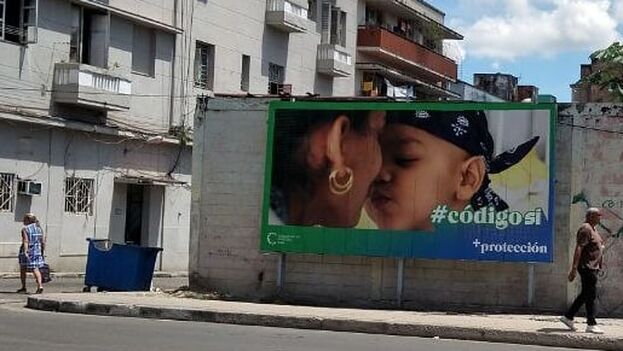
14ymedio, Yoani Sánchez, Havana, 27 September 2022 — María Julia, a 67-year-old from Camagüey, never read the full text of the Family Code put to a referendum this Sunday in Cuba, but she voted Yes because in the nucleus of the Communist Party of which she is a member called to “support the Revolution and show up at dawn at the polls.” In Havana, Yania, 42, checked the No box even though she has been dreaming of marrying Yesenia for years and this new legislation opens the door to same-sex marriage. She did so because she believes that “under a dictatorship there is no valid election.”
The supporters or opponents of this Family Code, which the experts classify as advanced, and jurists as necessary, are not homogeneous blocks nor are they divided along a clear line. Only the third referendum in Cuba in more than 60 years, this one was much more than a consultation on ‘solidarity gestation’*, the ways of dividing assets between a couple at the time of marriage, or the replacement of the concept of parental authority with that of parental responsibility. For many, this referendum was the only opportunity to send a message, through the polls, of disagreement with the Miguel Díaz-Canel regime.
The victory of Yes, with more than 66% of the valid votes, is not the victory that the ruling party had dreamed of, having bet all its propaganda resources on the approval of the Code without allowing voices to appear in the national media that would question or reject it. With more than 26% abstention, Castroism has come face to face with the lowest turnout at polling stations in its entire history. That figure in a democracy could be a sign of the times, but under a dictatorship – where not going to vote sends a signal and can cause serious individual reprisals – it is a clear gesture of defiance and confrontation.
Nor did the attendees behave according to the official script, which would have preferred a resounding acceptance of the new legislation. More than 27% of those who came to the polls said No, canceled the ballot or left it blank. In the end, less than 47% of the electoral roll said Yes to the Family Code. This figure shows a fractured society based on an issue, but also a population that has used, to a large extent, abstention and rejection to send a clear message to the Plaza de la Revolución.
If instead of a law to regulate family issues it had been a referendum on the draconian Penal Code, imposed without popular consultation and profoundly repressive, the message of repudiation of the Executive would have been much stronger and more massive. Cuban totalitarianism chose, however, to put to the vote some citizen rights that should have been approved de facto without going through an election. Perhaps Díaz-Canel thought it was going to be an overwhelming success and that he would wash his face before the international community, but he ended up reaping bitter spoils.
The Friday before the referendum, Díaz-Canel called for support for Yes also “for our socialism.” This Sunday he found his ability to convene has been significantly reduced, that the mobilization mechanisms no longer achieve the same effect as they did a few years ago, and that more than half of Cuban voters have punished, in one way or another, the system that he represents.
*Translator’s note: “Solidarity gestation” refers to legalizing methods to have children beyond a male/female couple conceiving and gestating their own child.
________________________
Editor’s Note: This text was originally published in Deutsche Welle in Spanish.
____________
COLLABORATE WITH OUR WORK: The 14ymedio team is committed to practicing serious journalism that reflects Cuba’s reality in all its depth. Thank you for joining us on this long journey. We invite you to continue supporting us by becoming a member of 14ymedio now. Together we can continue transforming journalism in Cuba.
